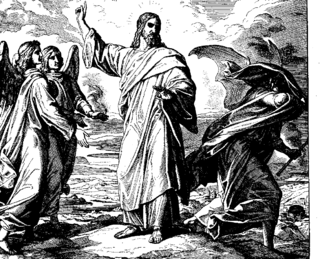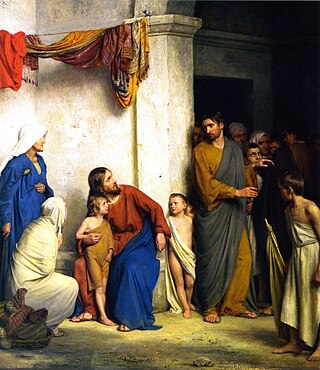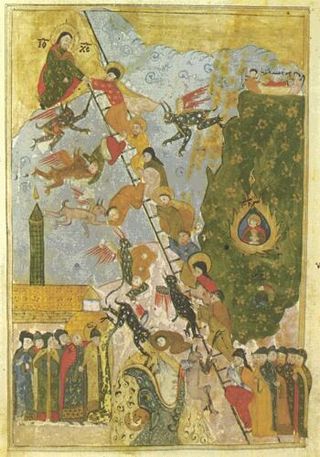Theophylact of Ohrid: " Nathanael however, notwithstanding this praise, does not acquiesce immediately, but waits for further evidence, and asks, Whence knowest Thou me?"
Chrysostom: "He asks as man, Jesus answers as God: Jesus answered and said unto him, Before that Philip called thee, when thou wast under the fig tree, I saw thee: not having beheld him as man, but as God discerning him from above. I saw thee, He says, that is, the character of thy life, when thou wast under the fig tree: where the two, Philip and Nathanael, had been talking together alone, nobody seeing them; and on this account it is said, that on seeing him a long way off, He said, Behold an Israelite indeed; whence it appears that this speech was before Philip came near, so that no suspicion could attach to Christ’s testimony. Christ would not say, I am not of Nazareth, as Philip told you, but of Bethlehem; in order to avoid an argument: and because it would not have been sufficient proof, had He mentioned it, of His being the Christ. He preferred rather proving this by His having been present at their conversation."
Augustine: "Has this fig tree any meaning? We read of one fig tree which was cursed, because it had only leaves, and no fruit. Again, at the creation, Adam and Eve, after sinning, made themselves aprons of fig leaves. Fig leaves then signify sins; and Nathanael, when he was under the fig tree, was under the shadow of death: so that our Lord seemeth to say, O Israel, whoever of you is without guile, O people of the Jewish faith, before that I called thee by My Apostles, when thou wert as yet under the shadow of death, and sawest Me not, I saw thee."
Gregory the Great: "When thou wast under the fig tree, I saw thee; i. e. when thou wast yet under the shade of the law, I chose thee."
This page is based on this
Wikipedia article Text is available under the
CC BY-SA 4.0 license; additional terms may apply.
Images, videos and audio are available under their respective licenses.















